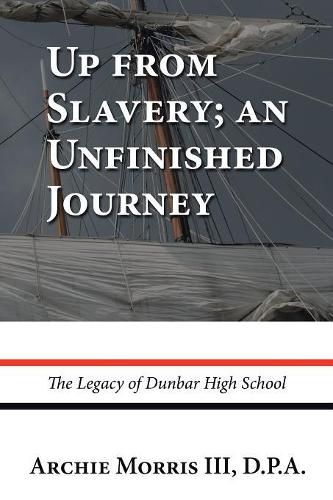Readings Newsletter
Become a Readings Member to make your shopping experience even easier.
Sign in or sign up for free!
You’re not far away from qualifying for FREE standard shipping within Australia
You’ve qualified for FREE standard shipping within Australia
The cart is loading…






This title is printed to order. This book may have been self-published. If so, we cannot guarantee the quality of the content. In the main most books will have gone through the editing process however some may not. We therefore suggest that you be aware of this before ordering this book. If in doubt check either the author or publisher’s details as we are unable to accept any returns unless they are faulty. Please contact us if you have any questions.
For a period of eighty-five years, the M Street / Dunbar High School was an academically elite, all-black public high school in Washington DC. As far back as 1899, its students came in first in citywide tests given in both black and white schools. Over this eighty-five-year span, approximately 80 percent of M Street / Dunbar's graduates went on to college even though most Americans, white or black, did not attend college at all. Faculty and students were mutually respectful to one another, and disruptions in the classroom were not tolerated. Yet in this era of best practices, this public high school has received virtually no attention in the literature or in policy considerations for inner-city education. The Dunbar High School today, with its new building and athletic facilities, is just another ghetto school with abysmal standards and low test score results despite the District of Columbia's record of having some of the country's highest levels of money spent per pupil. The purpose of this study is to explore the history of a high school that was successful in teaching black children from low-income families and to determine if the learning model employed there could be successful in a modern inner-city public education environment.
$9.00 standard shipping within Australia
FREE standard shipping within Australia for orders over $100.00
Express & International shipping calculated at checkout
This title is printed to order. This book may have been self-published. If so, we cannot guarantee the quality of the content. In the main most books will have gone through the editing process however some may not. We therefore suggest that you be aware of this before ordering this book. If in doubt check either the author or publisher’s details as we are unable to accept any returns unless they are faulty. Please contact us if you have any questions.
For a period of eighty-five years, the M Street / Dunbar High School was an academically elite, all-black public high school in Washington DC. As far back as 1899, its students came in first in citywide tests given in both black and white schools. Over this eighty-five-year span, approximately 80 percent of M Street / Dunbar's graduates went on to college even though most Americans, white or black, did not attend college at all. Faculty and students were mutually respectful to one another, and disruptions in the classroom were not tolerated. Yet in this era of best practices, this public high school has received virtually no attention in the literature or in policy considerations for inner-city education. The Dunbar High School today, with its new building and athletic facilities, is just another ghetto school with abysmal standards and low test score results despite the District of Columbia's record of having some of the country's highest levels of money spent per pupil. The purpose of this study is to explore the history of a high school that was successful in teaching black children from low-income families and to determine if the learning model employed there could be successful in a modern inner-city public education environment.